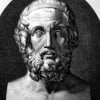"A Republic, if You Can Keep It"
- Poppa Bluesposted 15 years ago
0
America is NOT a democracy! To understand the difference between a democracy and a REPUBLIC, read on, and you'll realize why the health care bill is unconstitutional!
"A Republic, if You Can Keep It"
Written by John F. McManus
Monday, 06 November 2000 11:31
The deliberations of the Constitutional Convention of 1787 were held in strict secrecy. Consequently, anxious citizens gathered outside Independence Hall when the proceedings ended in order to learn what had been produced behind closed doors. The answer was provided immediately. A Mrs. Powel of Philadelphia asked Benjamin Franklin, "Well, Doctor, what have we got, a republic or a monarchy?" With no hesitation whatsoever, Franklin responded, "A republic, if you can keep it."
This exchange was recorded by Constitution signer James McHenry in a diary entry that was later reproduced in the 1906 American Historical Review. Yet in more recent years, Franklin has occassionally been misquoted as having said, "A democracy, if you can keep it." The NRA's Charleton Heston quoted Franklin this way, for example, in a CBS 60 Minutes interview with Mike Wallace that was aired on December 20, 1998.
This misquote is a serious one, since the difference between a democracy and a republic is not merely a question of semantics but is fundamental. The word "republic" comes from the Latin res publica — which means simply "the public thing(s)," or more simply "the law(s)." "Democracy," on the other hand, is derived from the Greek words demos and kratein, which translates to "the people to rule." Democracy, therefore, has always been synonymous with majority rule.
The Founding Fathers supported the view that (in the words of the Declaration of Independence) "Men ... are endowed by their Creator with certain unalienable Rights." They recognized that such rights should not be violated by an unrestrained majority any more than they should be violated by an unrestrained king or monarch. In fact, they recognized that majority rule would quickly degenerate into mobocracy and then into tyranny. They had studied the history of both the Greek democracies and the Roman republic. They had a clear understanding of the relative freedom and stability that had characterized the latter, and of the strife and turmoil — quickly followed by despotism — that had characterized the former. In drafting the Constitution, they created a government of law and not of men, a republic and not a democracy.
But don't take our word for it! Consider the words of the Founding Fathers themselves, who — one after another — condemned democracy.
• Virginia's Edmund Randolph participated in the 1787 convention. Demonstrating a clear grasp of democracy's inherent dangers, he reminded his colleagues during the early weeks of the Constitutional Convention that the purpose for which they had gathered was "to provide a cure for the evils under which the United States labored; that in tracing these evils to their origin every man had found it in the turbulence and trials of democracy...."
• Samuel Adams, a signer of the Declaration of Independence, championed the new Constitution in his state precisely because it would not create a democracy. "Democracy never lasts long," he noted. "It soon wastes, exhausts and murders itself." He insisted, "There was never a democracy that 'did not commit suicide.'"
• New York's Alexander Hamilton, in a June 21, 1788 speech urging ratification of the Constitution in his state, thundered: "It has been observed that a pure democracy if it were practicable would be the most perfect government. Experience has proved that no position is more false than this. The ancient democracies in which the people themselves deliberated never possessed one good feature of government. Their very character was tyranny; their figure deformity." Earlier, at the Constitutional Convention, Hamilton stated: "We are a Republican Government. Real liberty is never found in despotism or in the extremes of Democracy."
• James Madison, who is rightly known as the "Father of the Constitution," wrote in The Federalist, No. 10: "... democracies have ever been spectacles of turbulence and contention; have ever been found incompatible with personal security, or the rights of property; and have in general been as short in their lives as they are violent in their deaths." The Federalist Papers, recall, were written during the time of the ratification debate to encourage the citizens of New York to support the new Constitution.
• George Washington, who had presided over the Constitutional Convention and later accepted the honor of being chosen as the first President of the United States under its new Constitution, indicated during his inaugural address on April 30, 1789, that he would dedicate himself to "the preservation ... of the republican model of government."
• Fisher Ames served in the U.S. Congress during the eight years of George Washington's presidency. A prominent member of the Massachusetts convention that ratified the Constitution for that state, he termed democracy "a government by the passions of the multitude, or, no less correctly, according to the vices and ambitions of their leaders." On another occasion, he labeled democracy's majority rule one of "the intermediate stages towards ... tyranny." He later opined: "Democracy, in its best state, is but the politics of Bedlam; while kept chained, its thoughts are frantic, but when it breaks loose, it kills the keeper, fires the building, and perishes." And in an essay entitled The Mire of Democracy, he wrote that the framers of the Constitution "intended our government should be a republic, which differs more widely from a democracy than a democracy from a despotism."
In light of the Founders' view on the subject of republics and democracies, it is not surprising that the Constitution does not contain the word "democracy," but does mandate: "The United States shall guarantee to every State in this Union a republican form of government."
20th Century Changes
These principles were once widely understood. In the 19th century, many of the great leaders, both in America and abroad, stood in agreement with the Founding Fathers. John Marshall, chief justice of the Supreme Court from 1801 to 1835 echoed the sentiments of Fisher Ames. "Between a balanced republic and a democracy, the difference is like that between order and chaos," he wrote. American poet James Russell Lowell warned that "democracy gives every man the right to be his own oppressor." Lowell was joined in his disdain for democracy by Ralph Waldo Emerson, who remarked that "democracy becomes a government of bullies tempered by editors." Across the Atlantic, British statesman Thomas Babington Macauly agreed with the Americans. "I have long been convinced," he said, "that institutions purely democratic must, sooner or later, destroy liberty or civilization, or both." Britons Benjamin Disraeli and Herbert Spencer would certainly agree with their countryman, Lord Acton, who wrote: "The one prevailing evil of democracy is the tyranny of the majority, or rather that party, not always the majority, that succeeds, by force or fraud, in carrying elections."
By the 20th century, however, the falsehoods that democracy was the epitome of good government and that the Founding Fathers had established just such a government for the United States became increasingly widespread. This misinformation was fueled by President Woodrow Wilson's famous 1916 appeal that our nation enter World War I "to make the world safe for democracy" — and by President Franklin Roosevelt's 1940 exhortation that America "must be the great arsenal of democracy" by rushing to England's aid during WWII.
One indicator of the radical transformation that took place is the contrast between the War Department's 1928 "Training Manual No. 2000-25," which was intended for use in citizenship training, and what followed. The 1928 U.S. government document correctly defined democracy as:
A government of the masses. Authority derived through mass meeting or any other form of "direct expression." Results in mobocracy. Attitude toward property is communistic — negating property rights. Attitude of the law is that the will of the majority shall regulate, whether it be based upon deliberation or governed by passion, prejudice, and impulse, without restraint or regard to consequences. Results in demagogism, license, agitation, discontent, anarchy.
This manual also accurately stated that the framers of the Constitution "made a very marked distinction between a republic and a democracy ... and said repeatedly and emphatically that they had formed a republic."
But by 1932, pressure against its use caused it to be withdrawn. In 1936, Senator Homer Truett Bone (D-WA) took to the floor of the Senate to call for the document's complete repudiation. By then, even finding a copy of the manual had become almost impossible. Decades later, in an article appearing in the October 1973 issue of Military Review, Lieutenant Colonel Paul B. Parham explained that the Army ceased using the manual because of letters of protest "from private citizens." Interestingly, Parham also noted that the word democracy "appears on one hand to be of key importance to, and holds some peculiar significance for, the Communists."
By 1952 the U.S. Army was singing the praises of democracy, instead of warning against it, in Field Manual 21-13, entitled The Soldier's Guide. This new manual incorrectly stated: "Because the United States is a democracy, the majority of the people decide how our Government will be organized and run...." (Emphasis in original.)
Yet important voices continued to warn against the siren song for democracy. In 1931, England's Duke of Northumberland issued a booklet entitled The History of World Revolution in which he stated: "The adoption of Democracy as a form of Government by all European nations is fatal to good Government, to liberty, to law and order, to respect for authority, and to religion, and must eventually produce a state of chaos from which a new world tyranny will arise."
In 1939, historians Charles and Mary Beard added their strong voices in favor of historical accuracy in their America in Midpassage: "At no time, at no place, in solemn convention assembled, through no chosen agents, had the American people officially proclaimed the United States to be a democracy. The Constitution did not contain the word or any word lending countenance to it, except possibly the mention of 'We, the People,' in the preamble.... When the Constitution was framed no respectable person called himself or herself a democrat."
During the 1950s, Clarence Manion, the dean of Notre Dame Law School, echoed and amplified what the Beards had so correctly stated. He summarized: "The honest and serious student of American history will recall that our Founding Fathers managed to write both the Declaration of Independence and the Constitution without using the term 'democracy' even once. No part of any of the existing state Constitutions contains any reference to the word. [The men] who were most influential in the institution and formulation of our government refer to 'democracy' only to distinguish it sharply from the republican form of our American Constitutional system."
On September 17 (Constitution Day), 1961, John Birch Society founder Robert Welch delivered an important speech, entitled "Republics and Democracies," in which he proclaimed: "This is a Republic, not a Democracy. Let's keep it that way!" The speech, which was later published and widely distributed in pamphlet form, amounted to a jolting wake-up call for many Americans. In his remarks, Welch not only presented the evidence to show that the Founding Fathers had established a republic and had condemned democracy, but he warned that the definitions had been distorted, and that powerful forces were at work to convert the American republic into a democracy, in order to bring about dictatorship.
Means to an End
Welch understood that democracy is not an end in itself but a means to an end. Eighteenth century historian Alexander Fraser Tytler, Lord Woodhouselee, it is thought, argued that, "A democracy cannot exist as a permanent form of government. It can only exist until the voters discover that they can vote themselves largesse from the public treasury. From that moment on, the majority always votes for the candidates promising the most benefits from the public treasury with the result that a democracy always collapses over loose fiscal policy, always followed by a dictatorship." And as British writer G.K. Chesterton put it in the 20th century: "You can never have a revolution in order to establish a democracy. You must have a democracy in order to have a revolution."
Communist revolutionary Karl Marx understood this principle all too well. Which is why, in The Communist Manifesto, this enemy of freedom stated that "the first step in the revolution by the working class is to raise the proletariat to the position of ruling class, to win the battle of democracy." For what purpose? To "abolish private property"; to "wrest, by degrees, capital from the bourgeoisie"; to "centralize all instruments of production in the hands of the State"; etc.
Another champion of democracy was Communist Mao Tse-tung, who proclaimed in 1939 (a decade before consolidating control on the Chinese mainland): "Taken as a whole, the Chinese revolutionary movement led by the Communist Party embraces the two stages, i.e., the democratic and the socialist revolutions, which are essentially different revolutionary processes, and the second process can be carried through only after the first has been completed. The democratic revolution is the necessary preparation for the socialist revolution, and the socialist revolution is the inevitable sequel to the democratic revolution. The ultimate aim for which all communists strive is to bring about a socialist and communist society."
Still another champion of democracy is Mikhail Gorbachev, who stated in his 1987 book Perestroika that, "according to Lenin, socialism and democracy are indivisible.... The essence of perestroika lies in the fact that it unites socialism with democracy [emphasis in the original] and revives the Leninist concept.... We want more socialism and, therefore, more democracy."
This socialist revolution has been underway in America for generations. In January 1964, President Lyndon Johnson boasted in a White House address: "We are going to try to take all of the money that we think is unnecessarily being spent and take it from the 'haves' and give it to the 'have nots' that need it so much." What he advocated, of course, was a Marxist, not an American, precept. (The way Marx put it was: "From each according to his abilities, to each according to his needs.") But other presidents before and after have advanced the same goal. Of course, most who support this goal do not comprehend the totalitarian consequences of constantly transferring more power to Washington. But this lack of understanding is what makes revolution by the ballot box possible.
The push for democracy has only been possible because the Constitution is being ignored, violated, and circumvented. The Constitution defines and limits the powers of the federal government. Those powers, all of which are enumerated, do not include agricultural subsidy programs, housing programs, education assistance programs, food stamps, etc. Under the Constitution, Congress is not authorized to pass any law it chooses; it is only authorized to pass laws that are constitutional. Anybody who doubts the intent of the Founders to restrict federal powers, and thereby protect the rights of the individual, should review the language in the Bill of Rights, including the opening phrase of the First Amendment ("Congress shall make no law...").
As Welch explained in his 1961 speech:
... man has certain unalienable rights which do not derive from government at all.... And those ... rights cannot be abrogated by the vote of a majority any more than they can by the decree of a conqueror. The idea that the vote of a people, no matter how nearly unanimous, makes or creates or determines what is right or just becomes as absurd and unacceptable as the idea that right and justice are simply whatever a king says they are. Just as the early Greeks learned to try to have their rulers and themselves abide by the laws they had themselves established, so man has now been painfully learning that there are more permanent and lasting laws which cannot be changed by either sovereign kings or sovereign people, but which must be observed by both. And that government is merely a convenience, superimposed on Divine Commandments and on the natural laws that flow only from the Creator of man and man's universe.
Such is the noble purpose of the constitutional republic we inherited from our Founding Fathers.
This article, slightly revised, originally appeared in the November 6, 2000 issue of The New American.What is it with you dimbulbs? I keep seeing this screed over and over and the flaw in your reasoning is a very basic misconception of what a republic is.
In a nutshell the term 'republic' is a generic one. It is simply a form of government with a very basic and broad type of foundation. The definition for republic is:
Republic (plural republics)
1. A state where sovereignty rests with the people or their representatives. A country with no monarchy.
As such there have been many republics. Because the following countries do not have a monarchy they are republics.
America
Canada
Great Britain (though it's a technical monarchy) a parliamentary republic.
Cuba
Brazil
Columbia
Mexico
To say that the United States is a republic is true that does not mean all that much when one considers that a the term simply means we do not have a king or queen.
So yes, we are a republic, but we are also a representative democracy. This simply means that we elect people to represent us. The alternative to a representative democracy is a direct democracy where every member gets a vote and the direct vote determines the direction of the country.
So please right-wads stop spouting stupid crap. It doesn't impress anyone and simply shows how truly ignorant and uninformed you actually are.
Not something to brag about now is it?I dittto his ditto and applaud her Well Said.
Listen dimbulb, your basic misunderstanding of the nature of the American Republic is an irritatingly ignorant screed.
Your selection of the most generic meaning of the word Republic identifies you as a calculating liar. You chose that definition in order to avoid admitting that the United State of America is the only Republic with a charter that is based on negative rights, and which structurally places the people over the government in a legal sense.
You also chose that definition in order to avoid admitting that the legal structure of Canada, Great Britain, Cuba, Brazil, Columbia and Mexico are not "parliamentary republics" - which is a complete oxymoron you literally made up - but rather parliamentary democracies.
And finally, throwing the murderous totalitarian pseudo-democracy of Cuba into that list is to drench yourself in the blood of the hundred of thousands murdered by Che' and Castro, and the million functionally enslaved in that hellhole.
Either that, or you're literally too stupid to understand these distinctions.
So which is it? Are you a lying, murderous, seditious communist pig, or an ignorant left-wad spouting stupid crap?
Either way, it's not something to brag about, now is it?Words have a singular or primary meaning. But don't take my word for it; look it up. A republic is nothing more than a government without a monarchy at its head. The word is generic as the word "liquid" which would apply to water, oil, acid, or milk.
By that means I am most certainly not a liar; not even a calculating one.
That you people do not seem to understand the basic meaning of words is no surprise. That you attempt to act on your own twisting of the meanings...or creating a new meaning out of whole cloth is, well, humorous.
Now it's one thing to have political discussion where both sides have very good and valid points for their stands. It's entirely another when a group attempts to subvert the very meaning of a word with a long and illustrious history to score political points."You people"?!
Careful - your jackboots are showing.
Though having to dredge through all of this tedious explaining with the unwashed must be very wearying for you.
Tellya what. Sit back in your big leather chair (you know, the one with the carved double phoenix on the top), take your monocle out, have a glass of schnapps, close your eyes and let your thoughts drift away to the day when the vermin are in their place, and the ruling class is no longer bothered with such irritants, and then... dream of the Aristocratic Glory... Mien Gott... the Illuminated Power... that you will finally know then!!!
- StormRyderposted 15 years ago
0
Thats why all the great countries and governments call themselves republics!! We should all move to one of these fine Republics!

Russian Soviet Federative Socialist Republic.
The Peoples Republic Of China.They can call themselves what ever they want that doesn't mean they govern that way!
Neither country is ruled by a monarch so the definition holds. Both are republics.
How convenient that you left out the first part of the definition and chose to focus on the lack of a monarch part!
A state where sovereignty rests with the people!
Now who looks ignorant?
And you couldn't find an easier way of showing people the differences between a Republic and a Democracy?
You had to put a HUB in a forum thread.
Actually, when it comes the U.S.A., as a citizen...I am duty bound to see what it is you were talking about. Therefore, I had to come into this thread and see what the OP had to say.
So, with that said- YOU are wrong yet again. I did/must come to find out.
My point was that you could have explained it without using such a long post. If you cannot understand "why" I said what I said, then I would suggest you ponder the thought, because the answer has escaped you.
Either way, I stand by what I said.
here is a good video explaining the difference between forms of government...
http://www.youtube.com/watch?v=RhG4yJByfrEI did read it. It's a test of gullability.
1) America is not a democracy.
2) The founding fathers never wanted a democracy.
3) Democracy is actually a commie ploy to subvert the Repubic.
4) Commie programs like Social Security and Medicare are unconstitutional.
5) We have to go back to a strict interpretation of the Constitution (guess whose interpretation) liberate the rich of the burdens of taxation and return the freedom of abject poverty to the masses.
Regarding the first 3 words of the Preamble to the Constitution - Forget that part....it is cynicism that keeps one from seeing the truth in the constitution and interpreting it the way you have done...
I was not interpreting the Constitution. I was sumarizing that silly article not that any sane person would be deluded by the smoke and mirrors leading up to the ridiculous conclusion that We the People serve the Constitution - instead of the other way around.
WE THE PEOPLE are not powerless in the face of your interpretation of the document. As Ron pointed out correctly elsewhere- there's a panel empowered to decide what's constitutional - the Supreme Court.
I pledge allegiance to the flag of the United States of America, and to the republic for which it stands, one nation under God, indivisible, with liberty and justice for all.
There's the rub, my friend. WHAT does the republic stand for?
We The People
or
We the Rich People
So cutting through all the flak, if the healthcare bill passes it will be an unconstitutional act of Congress. Which means that legally I do not have to pay into the system. So I won't. Besides, after Sunday this will be challenged through so many courts that it will take another generation to untangle the mess.
Excuse me? Which memeber of the Supreme Court are you, again? Umm - if you have a ruling on a law that's not yet passed, that's quick work.. Which other justices concur and are you writing the Opinion of the Court? I am impressed!
Not.So what's your totalitarian argument here, Doug? That mere Americans can't discuss the law? That we need to wait for our betters to tell us what the law means?
You have no rebuttal to the issues. You can't come up with a cogent legal reply. You add nothing to the discussion, you offer no insights, you have no personal opinion, in fact, you can't seem to comprehend the idea of The People's duty and right to discuss the laws under which they are supposed to live.
Instead your game is intimidation for the purpose of silencing people through intimidation. You taunt like a schoolyard punk about - what? Someone actually having an opinion? In Soviet Russia and Cuba and Communist China they call people like you kapos and apparatchiks. You are the type of person in those countries around whom people hush up and stop talking, lest you file a report and they get a knock at the door. You are the type of creature that becomes a commissar, and forces suspects of wrong thinking to write, and rewrite, and rewrite their life stories, as you peer through it and demand corrections subject to your perverted politically correct approval.
So go back to the lodge and get new instructions - your current tactics aren't working.If anyone impartial wants to review the comments of Mr Deeds, or Ron or me (or any liberal) on the constitutional question, you will see that we argue over and over that the Supreme Court will decide. Repeatedly, conservatives argue that the bill IS unconstitutional - which is a far cry from the argument that they THINK it's unconstitutional.
I ridiculed foreignpress for making the statement hat HCR is unconstitutional without even a lame excuse of a poor argument..
I'm calling out 'you people' for telling lies - repeating lies or making ridiculous statements with no foundation. You wish I would go away. I'm embarasing you.Actually, you're embarrassing yourself. It is the duty of every citizen to understand our Constitution. That is what those of us you term "you people" are doing. If you can't join in the conversation with anything cogent, have the good sense, respect for others, and the decency to keep quiet.
Clearly you do not or you feel you have some special power to read the minds of men long dead.
Dolt!Then I presume you have renounced your citizenship,in that you have little understanding of the constitution.
Mr. Hughes: Your paltry attempt at ridicule didn't phase me. In fact, had you not pointed it out I wouldn't have seen your remark as offensive. Besides, I'm a journalist. I have rhino hide.
Regardless, there are some serious questions as to the constitutionality of this health care bill. And to think it will not be challenged in the courts is folly. it will go to the Supreme Court. No, I am not a member of that esteem body. But they do come to me for consultation occasionally. Yes, the medical insurance companies need to be brought under control. Yes, people need affordable health care.
But this Obama plan has more garbage in it than the White House dumpster. It's too bad that a disinterested party, such as the Swiss, couldn't take the Obama plan and pare it down to readable size. That, I would pay for.
@ LiamBean:
I'm sorry? A word has how many meanings? What dictionaries have you been looking at? I suggest you take your own advice and look things up before your post enormous diatribes that make you look well...the way you've accused others of looking.
Republic:
1 a (1) : a government having a chief of state who is not a monarch and who in modern times is usually a president (2) : a political unit (as a nation) having such a form of government b (1) : a government in which supreme power resides in a body of citizens entitled to vote and is exercised by elected officers and representatives responsible to them and governing according to law (2) : a political unit (as a nation) having such a form of government c : a usually specified republican government of a political unit <the French Fourth Republic>
2 : a body of persons freely engaged in a specified activity <the republic of letters>
3 : a constituent political and territorial unit of the former nations of Czechoslovakia, the Union of Soviet Socialist Republics, or Yugoslavia
http://www.merriam-webster.com/dictionary/republic
The word comes from two Latin words: RES (things) and PUBLICA (public, duh). It literally, from its roots means: "Things OF (BELONGING TO) the public" so if you're going to insist that the word has only one meaning, then you probably ought to go with that one.
ETA: BTW, make sure to take particular note of the fact that definition 1A and 1B are CONNECTED to one another.Clearly better ones that you apparently look at.
To wit.
Bureau:
1. Office
2. Desk
3. Chest of Drawers (primarily American usage)
Here's another.
Office:
1. A building or room where professional duties are performed.
2. A bureau, an administrative unit of government.
3. A position of responsibility.
4. A ceremonial observance of a social or religious nature.
5. A religious service.
6. A major administrative division.
Cute. I see nothing basically different than the definition I used. What I don't see is any direct reference to the United States or to our particular form of government. And no, "usually a president" is not enough to make it that specific.
Honestly you people really need to read more.Too bad your ability to understand the basic differences between forms of government doesn't equal your understanding of furniture. It is obvious you "see nothing basically different".
And another reference to "you people". My, my.
Really LimaBean, you need some serious sensitivity training.“Clearly better ones that you apparently look at.”
I can’t help but notice that you do not provide any reference for the definitions you have provided, and I suspect you edited one of your previous comments to remove a section in which you specifically suggested that we check a Webster’s dictionary (among others). If you’ll notice, I clearly referenced an online version of the Webster’s (now Merriam-Webster’s) Dictionary. I figure you’re smart enough to have realized how dumb that statement made you look once someone actually took your advice. Can’t say I blame you; we’ve all stuck our foot in our mouths…but most people shut up once it’s firmly planted there. I admire your perseverance, however misguided.
“Honestly you people really need to read more.”
I also cannot help but notice that while you managed to read the part of the definition about having a president, you completely missed this part of the definition:
“a government in which supreme power resides in a body of citizens entitled to vote and is exercised by elected officers and representatives responsible to them and governing according to law”
which, as I pointed out in the previous post, is connected to the first half of the definition. That’s indicated by those mysterious symbols 1A and 1B.
To wit: You are, either out of ignorance or intention, only using half of the most commonly used definition of the word (that’s indicated, again, by that 1A and 1B bit).
And I suppose the whole part about the Latin really did you in? Sorry to have blown your circuits there, bud…I’ll do my best to keep it within the realm of your ability to comprehend and maintain your attention…but I can’t promise anything.There is no ignorance on my part. You see the original screed insists that republic means a specific thing in regard to the United States.
It does not.
Republic has a very general and broad definition. A simple and clear fact every one of you continues to miss.
But do enjoy yourself showing how simple and ignorant you truly are. It's very entertaining to me.
I found the Ben Franklin quote very entertaining considering the person asking him "will it be a republic or a monarchy" could not vote herself.
But the quote is sound. Two very basic forms of government. A monarchy or a government run by "the people."
Republic does not mean a democracy; it simply means it is NOT a monarchy and by that definition all forms of government, including the Nazi run government of 1930s and 1940s Germany was also a republic.I can't find anything to admire about you nitwits.
That's a secondary definition. You do know, do you not, that not every numbered definition provided MUST adhere to the same basic concepts as the first. It is not a "this AND this AND this" condition. It is rather "this OR this OR this."
You see? It is you who have a basic misunderstanding; not I.
Again with the active imagination. No circuits of mine have been blown. You see, I know what I comprehend. That you not only do not, but have a comprehension problem as well is glaringly obvious. So it's quite funny to me for you, the one with serious cognitive skills, is chiding me for my cognitive skills.
As to Latin (the language). We use any number of words that have their foundation in Latin, but very few of them have the same meaning as the root word when it was coined and put into use in those times."I can't find anything to admire about you nitwits"
Aren't you just a wonderful person?
Us of A is neither a republic or a democracy if the senate can pass laws without a constitutional basis or even a vote.
This so called "health care" bill has little to do with either health or care and will drastically divide the nation if it is passed.Too late. The division is here and has been here for decades. There are just some people who feel the need to see black helicopters or dastardly conspiracy in every thing the government does.
I think it's healthy in some instances.
But the level and intensity I see lately is tantamount to serious brain damage.
Take your meds people.
- Brenda Durhamposted 15 years ago
0
Drat! It's late and that's too long to read right now, Poppa Blues.
But YES America is supposed to be a Republic. A Republic based on specific values adhering to Biblical concepts. I'm beginning to see a pattern here.
The problem is not reading skills; it's comprehension skills.
Too bad. The later is usually irreparable.- Brenda Durhamposted 15 years ago
0
Do you want some help with those comprehension skills of yours?
Just so you folks know I don't particularly want to see a health-care reform bill pass either. Not because we don't need to reign in insurance companies and health-care costs, but because the current bill is so deeply flawed that the only beneficiaries for the first two years will be the insurance companies and health-care providers.
The public will not benefit one iota for another two years if not more.
I don't think insurance companies really need captive clientele. They already make obscene profits as it is.
Now that does not make me a progressive or a right-wing liar and blovator. Both sides lie. The right shamelessly and the left sneakily.
No I am not for either side. Your constant bickering, labeling, and sniping would be laughable if it weren't so sad.
I say bring on the civil war and let the best side win.
As to what the founders wanted for us I say there's really no way to read the minds of the dead, but we can certainly get some idea from the way things were.
Therefore abolish all of the constitutional amendments after the tenth.As an outsider(and I would be interested to see if this is a perspective other non-Americans share)... It's really amazing to see how efforts by elected officials to make sure people don't die just because they don't have money for healthcare, makes so many Americans feel that the very foundation of their society is in ruin and that a Bolshevik revolution is just around the corner.
As an insider, I wonder the same thing. This group interprets our Constitution (as if that were the only relevant factor) in a way that suits their pre-conceived notions, and falsely claims that the government elected by a large majority of Americans has no right to act on that mandate.
Thankfully, we have a strong, enduring system of government that is based on a constitution that does not resemble the nightmarish version these people imagine.
As usual, America will get it right, though after a long unnecessary fight, and after many unnecessary casualties.
As usual, American conservatives will bitch about it and deny their loss for many decades.Well honestly they don't. What's pissing them off is that their team isn't winning right now.
It's not about law, or change, or even right and wrong. It's about the team they've chosen to cheer for and whether or not they are making the most points.
This is true of both sides by the way.Well that's not entirely true and once again your ignorance is showing.
The Federal government is separate from that of the States and was created to provide for the common interest of the states within specified LIMITS as documented in article 1 section 8 of the United States Constitution. Everything NOT listed in that section is the responsibility of the individual States and The People. Health Care is NOT in that section.
In addition, the bill under consideration, which will undoubtedly be passed against the will of the people, does much, much, more than offer a means for the less fortunate to get health insurance. It is those provisions that Americans are taking exception to, and rightly so.Hypocricy
You proclaim the virtues of a republic, then bitch because it doesn't function like a democracy.
The bill will pass because the government elected by a majority of Americans is finally taking a step in the right direction.No I bitch because the Federal government is assuming control over something it doesn't have authority to!
And I don't object to the government that was elected I object to their voting against the wishes of the majority of those that elected them.
Case in point, a (ex) congresswoman on the news this morning stated that the calls that come into the office are always against a bill under consideration. She said, people that are for a bill don't call. Really? I know that's not true because I asked my congressman how the calls were split on health care. This is about party, it's about what you can get, it's about protecting your career, it's about power and control.And how is this any different than the last hundred years? Not one bit as far as I can see.
Don't they do that fairly routinely? Isn't this the very thing Republicans claim is a GOOD thing? That a government can occasionally decide in direct opposition to the majority? I've certainly been reading that from the right a lot lately.
Seems to me you want it both ways...as long as it's your way that is.
"This is about party..."
Like I said. Your team or the other team. Go team go!Why do you lefties always resort to justifying a wrong with a previous wrong? If you get away with murder does that make it all right? I'd like to see a return to constitutional government.
I don't know what Republicans claim and I don't care! I only care about what's right and that they play by the rules of the game. They're supposed to represent the people, and that doesn't just mean the lobbyists that write the bills for them and contribute to their campaigns. Their primary consideration should be to protect INDIVIDUAL liberty, regardless of party.
I'm not rooting for a team I'm rooting for ME, a minority of one!First, using the word "lefties" with "you" in the same sentence does not compute. I'm equally disgusted with the right and the left. Second, I'm not justifying anything; just pointing out the obvious. If you want to play fair then please do so. If you don't want to or simply can't then you have no reason to bitch when the very methods you use are used against you.
The golden rule and all that...
You should. They claim you.
Why do you care about rules when you yourself can't abide by them.
I do agree with your take on individual liberty, but this is a free country. What you and I consider individual liberty may not be what another country-person considers individual liberty.
After all the Constitution states:
"We the People of the United States, in Order to form a more perfect Union, establish Justice, insure domestic Tranquility, provide for the common defence, promote the general Welfare, and secure the Blessings of Liberty to ourselves and our Posterity, do ordain and establish this Constitution for the United States of America."
The underlined and bold faced text above COULD be excuse enough to say that a national health-care policy is constitutional. Or don't you see that.
Well good luck with that.
So what exactly bothers you about the health-care bill beyond the fact that it's "unconstitutional?" In other words what do you stand to lose.
By the way. If congress passes it as law it IS constitutional. At least, until, the supreme court strikes it down.
But that's never happened before has it?That's generous of you! You didn't happen to be at the Tea Party in Ohio a couple of days ago, did you?
I see that your reading for comprehension skills are either STILL sadly lacking or you did not bother to read what I wrote.
As I said before I do not want, nor do I believe, that the health reform bill will pass.
OK cupcake?
- Will Apseposted 15 years ago
0
The founding fathers wanted a weak government that wouldn't interfere with the right of entrepreneurs to make money. They'd had enough of Britain setting the terms for trade and didn't want any new government interfering in a similar way.
Essentially, the American revolution was a businessman's revolution and it took a long time for ordinary people to even get a vote.
Those fine words about the Pursuit of Happiness were not intended to apply, to non males, non whites or non property holders- none of whom were enfranchised by the Constitution.I think that's about right. I also believe that these men did not see their efforts as the last step in America's development (as most conservatives believe) but rather movement toward a better society than they had inherited.
Yup! That's why I think the amendments after the tenth need to go. Being a white property (and sometimes business) owner I want the advantages that were built-in to the constitution at the beginning.
Look at it this way. Women got the vote and they are still bitching. So it didn't do any good now did it? Cut them out of the loop; they'll bitch anyway.
And what's wrong with an indentured servant who only costs you room and board? Especially if you can cut costs on that room and board.
It's all about the bottom line and I want my bottom line to be blacker than yours.
All kidding aside even if the health reform bill passes it will be just a few years before the right dismantles it bit by bit. But I don't think it will pass anyway.
So what the hell are you people whining about? You know the score. You know the likelihood of passage is slim to none. And you even know that once your side is back in power, even if the bill passes, they'll wound it so deeply and so completely it will be as if it never passed in the first place.
I honestly think you get great enjoyment out of wringing your hands, rending your clothes and wailing to god about how "you been done wrong."
In a republic, the "voice" is of those selected as "worthy" while all others are subject to the tyranny of that group.
In American history, this Republic was set up so that only a fraction of the population could participate....based off gender, religion, land-owning status, among other requisites...
As more have gained the vote, it has increasingly turned to the candidate or campaign that receives the most money to determine a victor....
We are a plutocracy.....as Citigroup views us, along with many others.....
Related Discussions
- 182
Is the Separation of Powers BROKEN in the USA?
by Arthur Russ 20 months ago
In a true democracy there should be a separation of powers between the Juridical, Executive and Legislature. No democracy is perfect, but how imperfect is the American democracy?While browsing the web in relation to a question on the Separation of Powers in the USA (in another forum) I...
- 21
Can we be one nation?
by jomine jose 11 years ago
Anarchy, they say, is the best form of government. As it is possible only in Utopia, can't we try for a single universal nation with a single government (the second best) instead of the separate nations we are now. That can at least sort some of the problems world is facing now. America's...
- 152
Our Founding Fathers Were Not Christians
by cooldad 14 years ago
Were the founding fathers of this country Christians? I have always been under the impression that our country was founded by people who were escaping religious persecution. Why then, do so many people claim that this country was created under Christianity? I could be wrong, but I...
- 31
Convention of States to amend the U.S. Constitution
by tbHistorian 11 years ago
The Georgia state legislature passed a measure calling for a Convention of States to amend the U.S. Constitution. This would establish a Continental Congress composed of citizens that would work to achieve solidarity for amendments to the Constitution to restore the power to the people. ...
- 15
I America a "Christian Nation"? What does that term even mean?
by Justin Aptaker 13 years ago
I America a "Christian Nation"? What does that term even mean?I often here that America is a "Christian Nation". Do you agree or disagree with this? And what, exactly, does that mean? Clearly, not nearly all Americans are Christians. Does this mean that a few of the first...
- 52
Why do Conservatives prefer “Republic” over “Democracy”?
by Credence2 2 years ago
On this eve of the 82nd anniversary of the attack on Pearl Harbor, I now have my own cache to deliver.Because of the dishonesty, cowardice and treachery of certain forum participants and they know who they are, I will only direct my comments to those that in my experience do not behave in this...























